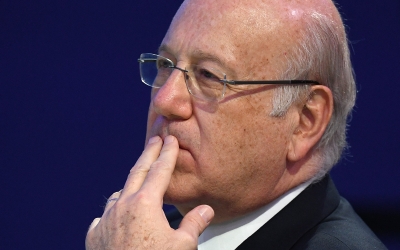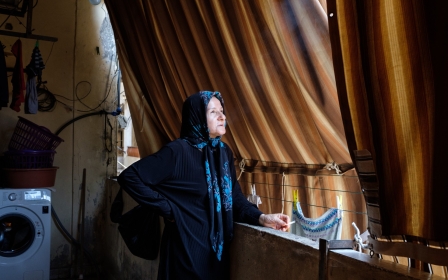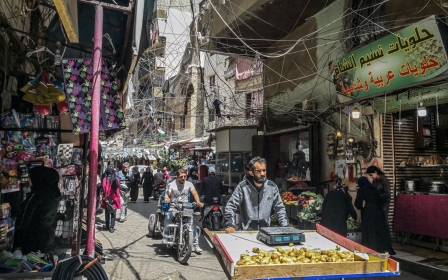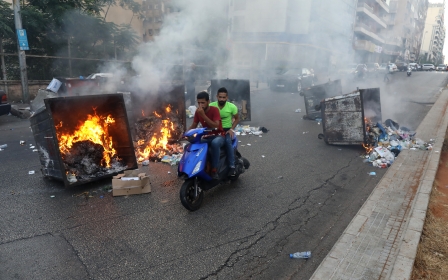Lebanon: What is driving the judiciary's recent actions against banks?
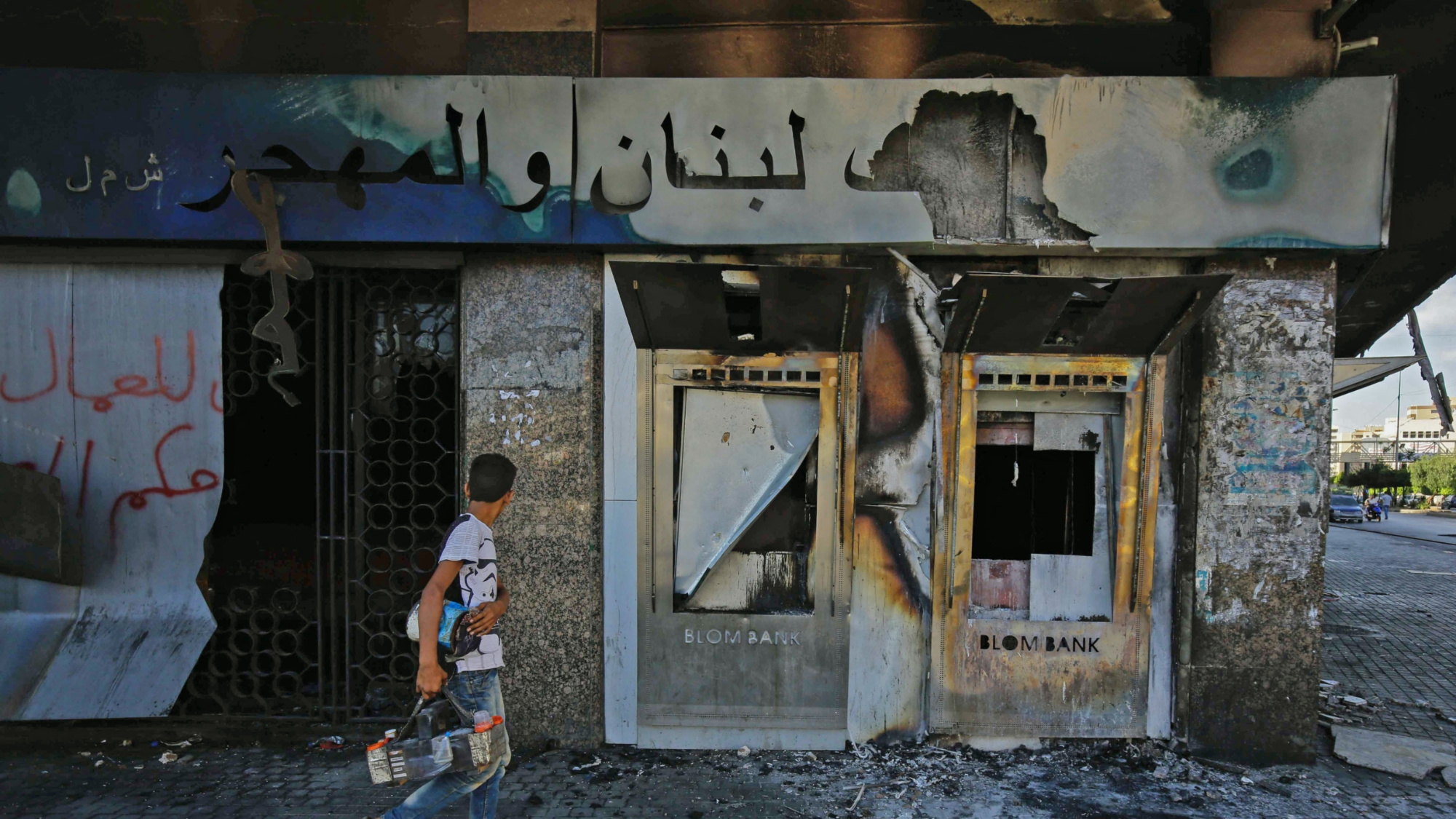
Unfettered by judicial scrutiny, Lebanese banks have for almost three years run amok while a financial meltdown - which they are widely accused of exacerbating - wreaked havoc on the lives of the majority of Lebanese.
With the economic crisis showing no sign of abating, the Lebanese judiciary, long held back by political pressure, has in recent weeks taken on the banking system.
Last month, Mount Lebanon's State Prosecutor Judge Ghada Aoun froze the assets of six banks - Bank of Beirut, Bank Audi, SGBL, Blom Bank, Bankmed, and Creditbank - as she investigated transactions made with the central bank.
She also issued travel bans against the CEOs of five of the banks.
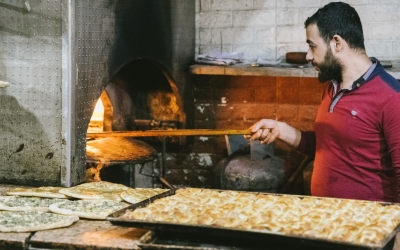
Aoun also charged central bank governor Riad Salemeh with illicit enrichment, the first charge to be brought against him in Lebanon.
Salameh, who has denied the charges, is also facing investigation in at least five European countries over allegations of money laundering and embezzlement of hundreds of millions of dollars at the central bank. Salameh’s brother Raja is also implicated in these investigations.
Salameh’s history as central bank governor has come under scrutiny since the financial system imploded in 2019 following decades of corruption and mismanagement.
The crisis has resulted in the Lebanese currency losing 90 percent of its value, banks locking most depositors out of hard-currency accounts, and around 80 percent of the population living in poverty.
The Lebanese parliament has also yet to pass a capital control law, which is vital in order for Lebanon to secure an International Monetary Fund (IMF) aid package, leaving banks to introduce informal controls that have treated depositors unequally.
A draft government financial rescue plan earlier this year estimated a roughly $70bn hole in the financial sector, according to Reuters. To date, no one has been held accountable for the economic collapse.
Paul Morcos, lawyer and founder of Justicia Beirut Consult, said there have been numerous lawsuits brought against banks, but attributed the delay in legal actions to several technical obstacles, including the Covid-19 pandemic and a series of strikes by the unions of judges and lawyers.
“The judiciary process takes time. Judges also struggled to issue notifications against banks, and some prosecutors hesitated to take serious actions against banks to avoid economic repercussions for a certain period,” Morcos told Middle East Eye.
'Judges are under pressure'
The increased scrutiny in recent weeks has raised speculations around the timing behind the judicial drive.
Some experts linked it to the European investigations, however, others believe it is politically motivated.
Nizar Saghieh, Lebanese lawyer and co-founder of Legal Agenda, told MEE that the pressure on Lebanon's banking system is taking place in both Europe and Lebanon.
"Judges are under pressure because of the European investigations. Lebanese courts couldn't fully operate for two years, but now the situation has improved," he said.
Targeted banks have reacted to the judicial pressure, with some retaliating against depositors.
Fransabank last month closed all its branches after Judge Mariana Anani froze its assets following a lawsuit by an Egyptian depositor to compel the bank to reopen his account and return his deposit in cash.
Meanwhile, the six banks slapped with asset freezes went on a two-day strike on 21-22 March after the Association of Banks in Lebanon (ABL) announced that banks would close due to the increasing legal pressure on the banking sector.
Lebanon's top public prosecutor Ghassan Oueidat later reversed Aoun's decision to bar the banks from moving money out of the country.
Depositors' Union lawyer Zeina Jaber said she believes that there is a link between the judicial action against banks and the international investigation of the central bank governor and his brother.
“Lebanese public prosecutors started to investigate the cases that are now under the investigation of European courts,” Jaber told MEE.
“Although each case follows its course independently, there is a link between these events, but we don't have access to the files to learn more as investigations have yet to be disclosed.”
Some experts say judicial pressure on banks is legal as banks have illegally restricted depositors' access to their bank accounts.
But for others, however, the decision by judges to pursue banks is driven by political influence.
Political tool
Rami Rayess, a political analyst and advisor to Druze leader Walid Jumblatt, told MEE that political motivations are leading the judicial actions.
“We lack an independent judicial authority,” he said.
“We have seen several steps made by some judges that are more politically motivated than judicially motivated as they are working under political influence.”
Rayess added that while Salameh bears part of the responsibility for the economic meltdown, he is not the only one who should be prosecuted.
Rayess highlighted the proceedings launched at the initiative of Aoun, whose critics accuse her of being close to President Michel Aoun, who appointed her.
The president’s Free Patriotic Movement wants the central bank governor removed from his post. Judge Aoun has maintained that she is only implementing the law.
However, Jaber, the union lawyer, countered that while the public opinion believes some judges are politically-motivated, there are still independent judges who are also fighting for a more independent judiciary system.
'Ironically, [politicians] are the same people who have allowed banks to lock depositors' bank accounts for almost three years'
- Jamal Bleik, Transparency Association treasurer
Saghieh, meanwhile, said that even though prosecutors in Lebanon are in one way or another linked to political forces, it does not mean that their legal actions are illegal as they are set up on soundly-based evidence.
Legal actions against banks have increased just two months before the general elections scheduled in May 2022, leading some to think that they may have political implications.
Lebanese Transparency Association treasurer Jamal Bleik told MEE that the pressure on the banking system might be being used by political parties as a way of demonstrating their sympathy to voters.
“As we are approaching the elections, politicians want to be heroes showing their voters they care about depositors,” he said.
“But ironically, they are the same people who have allowed banks to lock depositors' bank accounts for almost three years.”
However, Bleik thinks the scrutiny will not have an impact on the elections.
"People know that the entire political establishment and the entire banking system is part of the country's economic meltdown," he said.
Government interference
But as judges target banks, the government is now attempting to counterbalance their legal actions by putting political pressure on the judiciary.
Saghieh believes that Prime Minister Najib Mikati has been trying to interfere on behalf of Salameh.
In January, several local news outlets reported that Mikati called Oueidat and threatened to resign if Judge Jean Tannous continued to pressure banks for information relating to his investigation of Salameh's embezzlement and other misconducts at the central bank.
While Mikati denied interfering with the judiciary’s work, on 24 March, he invited Salameh to attend a cabinet meeting as a show of support.
"The government wants to keep the status quo. In this context, depositors will lose a big part of their money,” Saghieh said.
“The lack of capital control law means that losses will be compensated by depositors only. The government expects that the judiciary will follow this status quo.
“Through the capital control law, the government wants to enable banks to continue their practices without facing any judicial proceedings.”
According to Saghieh, Mikati wants a capital control law passed to stop all legal actions against commercial banks.
'We said to the courts that these strikes are an obstruction for the rights of depositors to withdraw money for daily use
- Zeina Jaber, lawyer
On 23 March, Mikati's cabinet approved the justice minister's proposal to form a committee consisting of judges and bankers to discuss the banks-judiciary situation.
"I see a breach of the separation of powers principle in such an initiative. The solution should be establishing a governmental plan to reform the economic and the banking sectors," he said.
Although Bleik argues that judges are implementing the law by taking legal actions against Salameh and the banks, he said that taking actions against all Lebanese banks could put the country at risk.
"The government had intentionally decided not to release a capital control law. The message behind this was that if banks decide to transfer money abroad from existing accounts, they would not be doing anything illegal," he said.
Jaber, meanwhile, said that banks will not stop pushing back against legal actions.
"We said to the courts that these strikes are an obstruction for the rights of depositors to withdraw money for daily use,” she said.
“As Depositors' Union, we have been asking for these legal actions since the beginning of the economic crisis. Therefore, we are with any investigations that benefit the depositors.”
Middle East Eye delivers independent and unrivalled coverage and analysis of the Middle East, North Africa and beyond. To learn more about republishing this content and the associated fees, please fill out this form. More about MEE can be found here.


